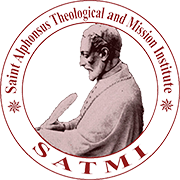EDITORIAL INTRODUCTION
Rationality and Relationality
How can Filipino Christological consciousness become liberating? What are the lessons of the Philippines’ 5th centenary celebration for the Church’s post-Covid-19 mission? Does the postmodern appropriation of the Trinitian doctrine have something to say to Mindanao’s concerns? Could the motif of human fraternal relations be deduced in politically laden conflicts of nations in Amos’ prophecy? How can the Eucharistic theology become paradigmatic in confronting the violent regime of Duterte? How potent poems could be in theologizing?
I intentionally converted the topics of the six thought-provoking articles in this latest edition of Budyong into six questions. I have my reasons. In my fourth year as a lecturer of ‘Faith and Revelation’ here at SATMI, I concur with the claims of many thinkers that knowledge and understanding are not so much about giving persuasive answers but rather asking the right and relevant questions. Many times, I was caught surprised by my students’ probing existential and transcendental questions that exacted no answer but exhibited a realization that these questions genuinely touched the deepest needs and values of human existence. They are not arbitrary questions according to Gerald O’Collins because, at the bottom, they are questions about God which in essence are also questions about the human person.
Fr. Neil Badillo, OFM, S.Th.D
- The Past, a Door to the Future Reflections for the Journey – Fr. Antonio Rosales, OFM
- Christ and Filipino Cultures The Changing Faces of Christ in the Philippines – Melanio LaGuardia Aoanan
- The Possibility of a Postmodern Trinitarian Theology and Its Appropriations – Niel John Capidos
- The ‘Other’ as Brother: The Centrality of the Fraternity Motif in Amos 1,9-12 – Fr. Elton Viagedor, OFM
- The Politics of the Eucharist: A Critic of Duterte’s Violent Illiberalism – Danilo Agustin Jr.
